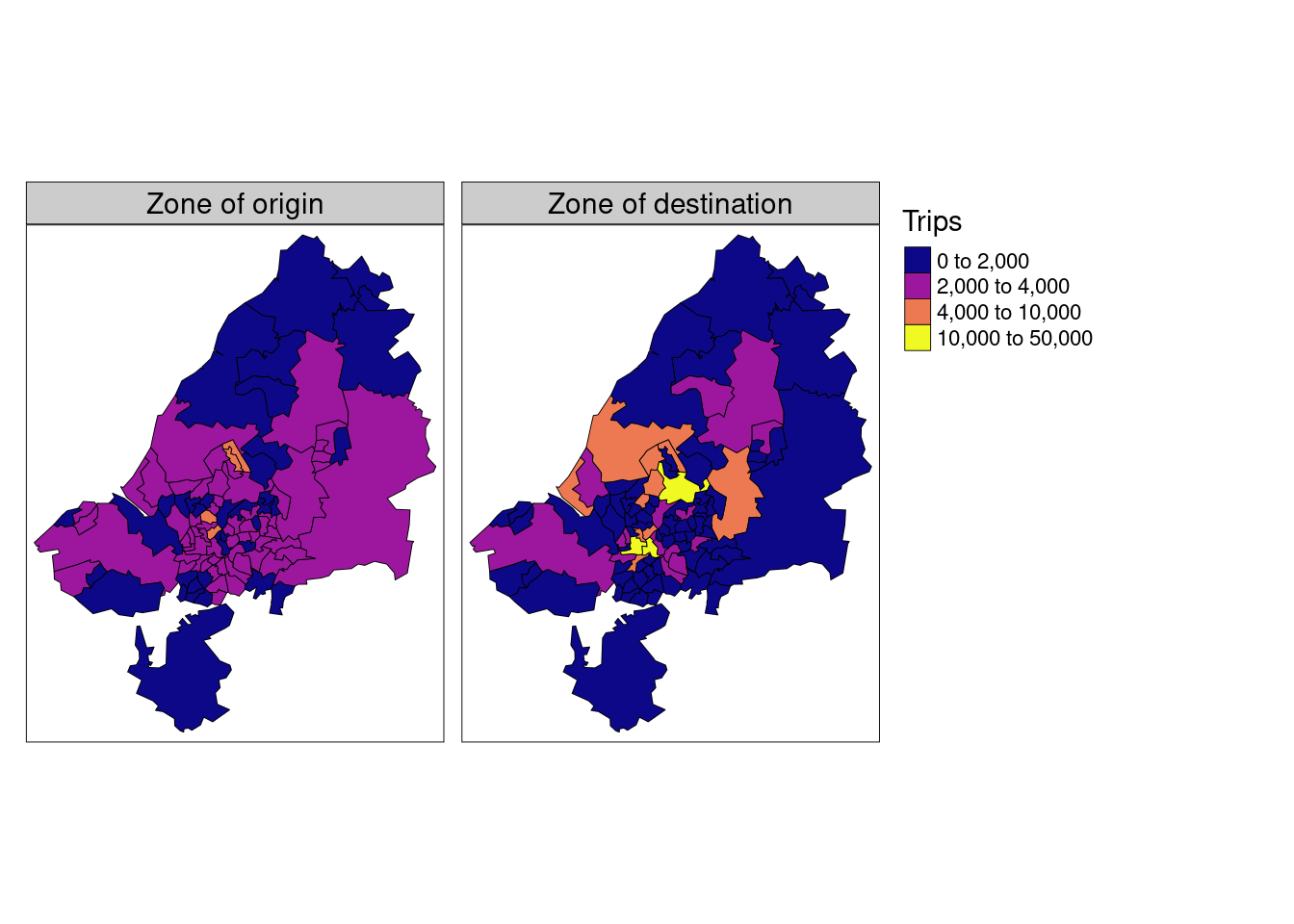13.2 Transport Zones
Two zone types are of particular interest to transport researchers: origin and destination zones
Different zoning systems, such as ‘Workplace Zones’, may be appropriate to represent the increased density of trip destinations in areas with many ‘trip attractors’ such as schools and shops.
Travel to Work Areas (TTWAs) create a zoning system analogous to hydrological watersheds.
There are 102 TTWA zones in our dataset.
bristol_od has more rows than bristol_zones because it represents travel between zones
The o column is origin and the d is destination
nrow(bristol_od)## [1] 2910names(bristol_od)## [1] "o" "d" "all" "bicycle" "foot"
## [6] "car_driver" "train"nrow(bristol_zones)## [1] 102zones_attr <- bristol_od |>
group_by(o) |>
summarize(across(where(is.numeric), sum)) |>
dplyr::rename(geo_code = o)
zones_attr## # A tibble: 102 × 6
## geo_code all bicycle foot car_driver train
## <chr> <dbl> <dbl> <dbl> <dbl> <dbl>
## 1 E02002985 868 30 173 414 43
## 2 E02002987 898 34 117 523 58
## 3 E02003005 786 19 91 593 8
## 4 E02003012 3312 161 330 2058 12
## 5 E02003013 3715 188 615 2021 6
## 6 E02003014 2220 126 270 1239 5
## 7 E02003015 1633 166 307 786 7
## 8 E02003016 2411 218 440 1105 23
## 9 E02003017 1590 187 208 898 9
## 10 E02003018 1690 96 143 1048 20
## # ℹ 92 more rowszones_joined <- bristol_zones |>
left_join(zones_attr, by = "geo_code")
sum(zones_joined$all)## [1] 238805names(zones_joined)## [1] "geo_code" "name" "all" "bicycle" "foot"
## [6] "car_driver" "train" "geometry"The result contains columns representing the total number of trips originating in each zone and their mode of travel (by bicycle, foot, car and train).
Most zones have between 0 and 4,000 trips originating from them.
Low trip numbers in the outskirts of the region might be explained by the fact that many people in these peripheral zones will travel to other regions outside of the study area.
zones_destinations <- bristol_od |>
group_by(d) |>
summarize(across(where(is.numeric), sum)) |>
select(geo_code = d, all_dest = all)
zones_od = zones_joined |>
inner_join(zones_destinations, by = "geo_code")
tm_shape(zones_od) +
tm_fill(
c("all", "all_dest"),
palette = viridis::plasma(4),
breaks = c(0, 2000, 4000, 10000, 50000),
title = "Trips"
) +
tm_borders(col = "black", lwd = 0.5) +
tm_facets(free.scales = FALSE, ncol = 2) +
tm_layout(panel.labels = c("Zone of origin", "Zone of destination"))